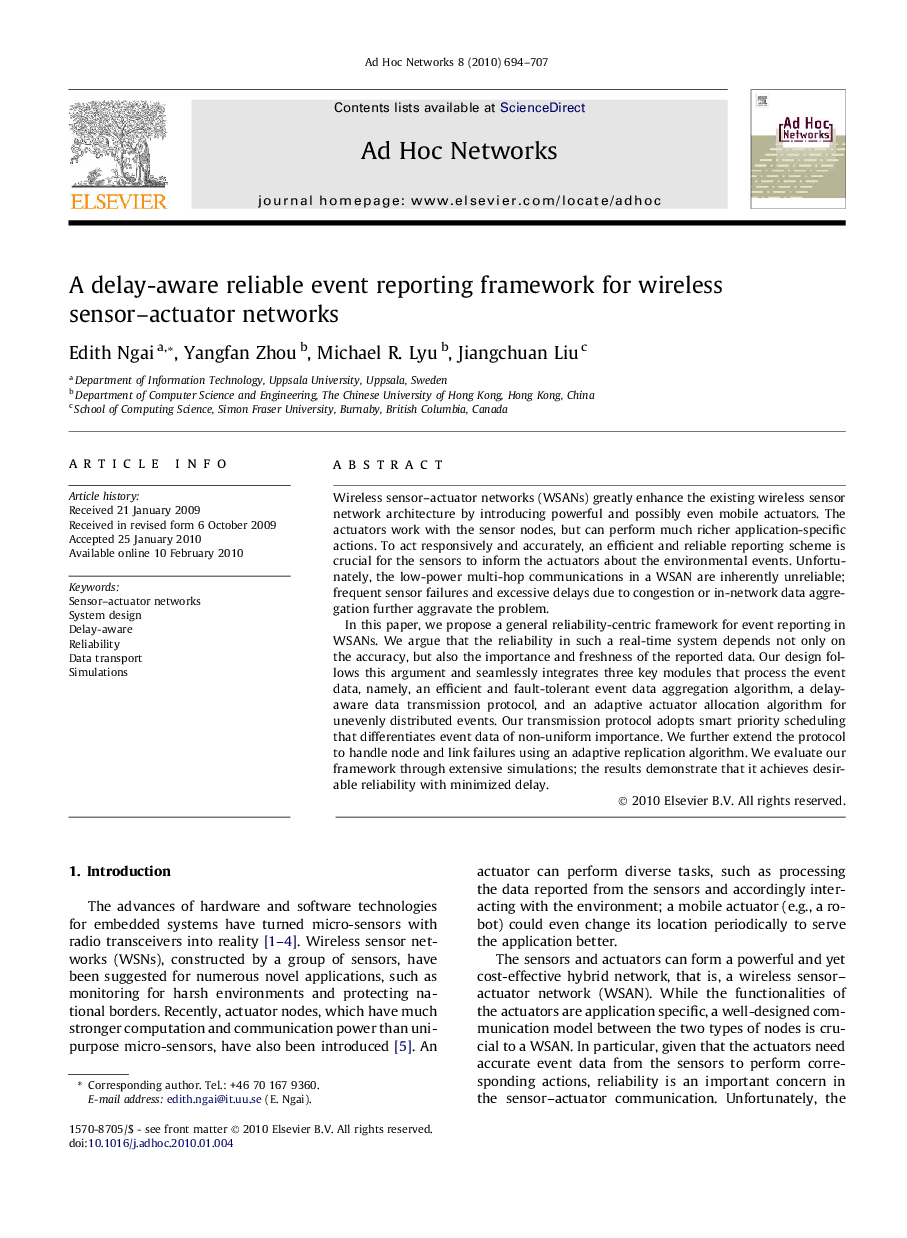| Article ID | Journal | Published Year | Pages | File Type |
|---|---|---|---|---|
| 444722 | Ad Hoc Networks | 2010 | 14 Pages |
Wireless sensor–actuator networks (WSANs) greatly enhance the existing wireless sensor network architecture by introducing powerful and possibly even mobile actuators. The actuators work with the sensor nodes, but can perform much richer application-specific actions. To act responsively and accurately, an efficient and reliable reporting scheme is crucial for the sensors to inform the actuators about the environmental events. Unfortunately, the low-power multi-hop communications in a WSAN are inherently unreliable; frequent sensor failures and excessive delays due to congestion or in-network data aggregation further aggravate the problem.In this paper, we propose a general reliability-centric framework for event reporting in WSANs. We argue that the reliability in such a real-time system depends not only on the accuracy, but also the importance and freshness of the reported data. Our design follows this argument and seamlessly integrates three key modules that process the event data, namely, an efficient and fault-tolerant event data aggregation algorithm, a delay-aware data transmission protocol, and an adaptive actuator allocation algorithm for unevenly distributed events. Our transmission protocol adopts smart priority scheduling that differentiates event data of non-uniform importance. We further extend the protocol to handle node and link failures using an adaptive replication algorithm. We evaluate our framework through extensive simulations; the results demonstrate that it achieves desirable reliability with minimized delay.
